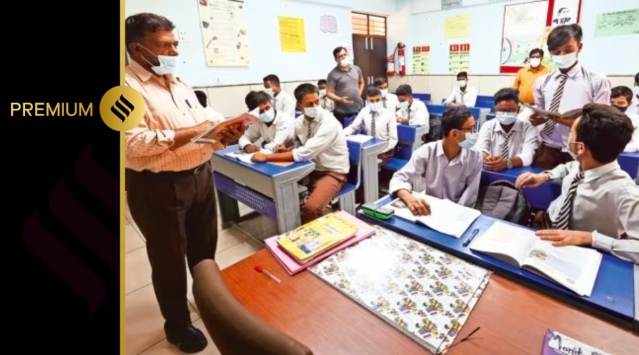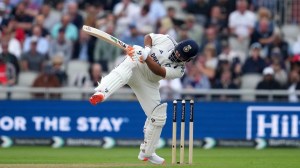How Bihar Public Service Commission tackled cheating
Several exams conducted by the BPSC in the past have been marred by allegations of corruption, paper leaks and delays, prompting it to put in place safeguards.
 To fix the OMR sheets’ issues, the BPSC decided to put its one-time seal on all of them. According to officials, any tampering with this seal is easily identifiable.
To fix the OMR sheets’ issues, the BPSC decided to put its one-time seal on all of them. According to officials, any tampering with this seal is easily identifiable.The Bihar Public Service Commission (BPSC) Thursday began conducting the second phase of the government teachers recruitment exams (TRE-II), after the first phase went off smoothly earlier this year. It is for the first time that the state government has entrusted the BPSC with conducting the teachers’ exams, taken by 8.5 lakh candidates vying for 1.2 lakh posts.
Several exams conducted by the BPSC in the past have been marred by allegations of corruption, paper leaks and delays, prompting it to put in place safeguards.
In 2005, the then BPSC chairperson Ramsinghasan Singh and six others were arrested on corruption charges for discrepancies in the elevation of 184 employees to the Bihar Administrative Services. The commission has also seen multiple cases of paper leaks over the years.
This marks the first time the BPSC is conducting an exam other than the state service exams. Speaking to The Indian Express, its chaiperson Atul Prasad said: “When I joined the commission in August 2022, my first task was to hold prelims of the 67th BPSC combined services examination that had to be cancelled after a paper leak in May. While we successfully conducted the examination in September 2022, we spoke to the Economic Offences Unit (EOU) that had been investigating the latest and previous paper leak cases. We wanted to plug the gaps.”
The commission identified that the bags in which question papers were supplied to examination centres had been cut to pilfer question sets, and also that the OMR sheet used for the prelims could be tampered and answers changed using fluid. “We also found, in some cases in Mains papers, that some answer sheets were the same. It suggested that answers were written post-examination,” he said.
To counter these, the BPSC put in place what it described as an “antiviral” method for the first phase of the teachers recruitment exam (TRE-I). This involved calling all those taking the exams inside the hall one hour before it starts.
“There was a precedent of opening question sets in the office of the centre superintendent an hour before examination. We changed this to opening the question papers, which are now carried in a box instead of a bag, right in the examination hall itself, in the presence of the aspirants. No examinee is then allowed to go outside the examination hall,” he said.
To fix the issues related to the OMR sheets, the BPSC decided to put its one-time seal on all of them. According to officials, any tampering with this seal is easily identifiable. This was successfully implemented during TRE-1, which involved 8.5 lakh candidates.
The BPSC also affected some “behind the curtain” reforms. “Earlier, every item going inside the strongroom and coming out of it would be unsealed. However, now, we ensure that all question or answer sheets being kept in the strongroom are sealed. We also made a dedicated strongroom for every examination,” Prasad said.
“The next step was to put in smart locks with passcodes. These locks have a log system, which logs the time and date of opening and closing of the strongrooms, which are also under CCTV surveillance,” he said.
The BPSC has also introduced two photographs on admit cards – one taken by a webcam during the online filing of the examination form, and another a studio photograph. “While the webcam photo has disadvantages in terms of giving a clear picture, it does have the advantage of being used for facial recognition. Studio photograph ensures that no impersonation is possible,” Prasad said.













